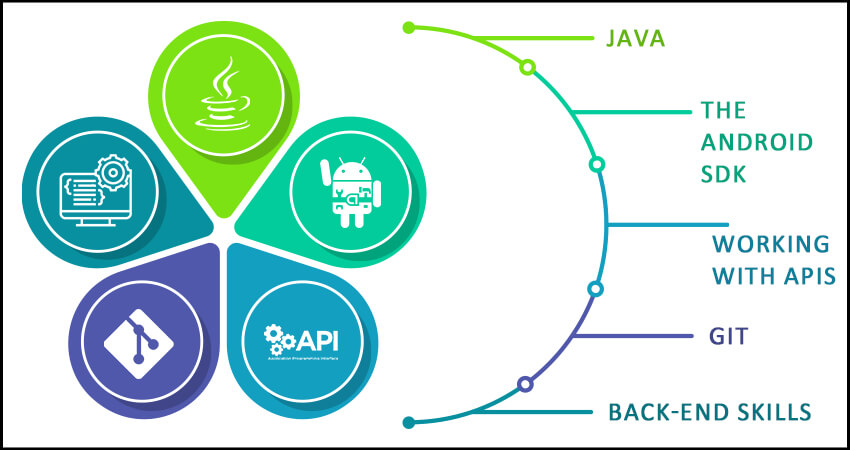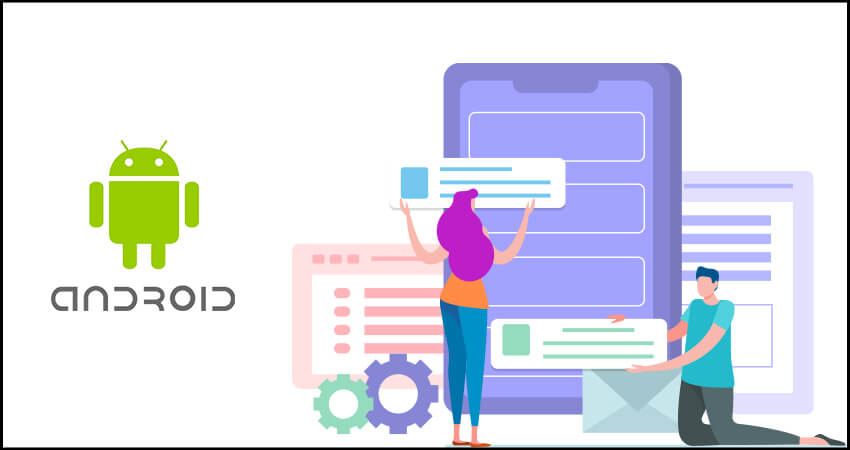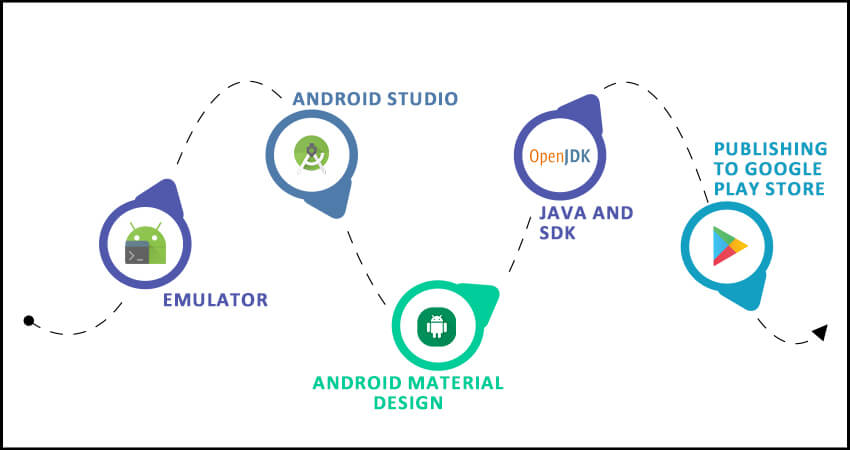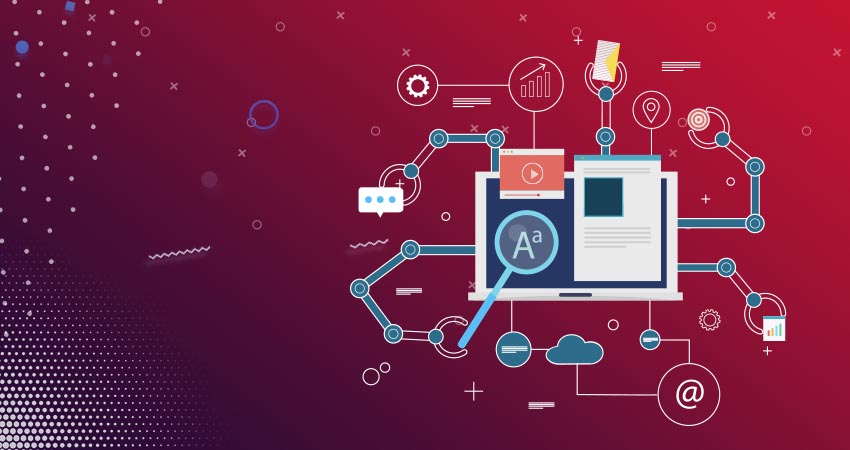How to get a job of an android developer being a fresher
Posted By:ExcelPTP
March 17,2020
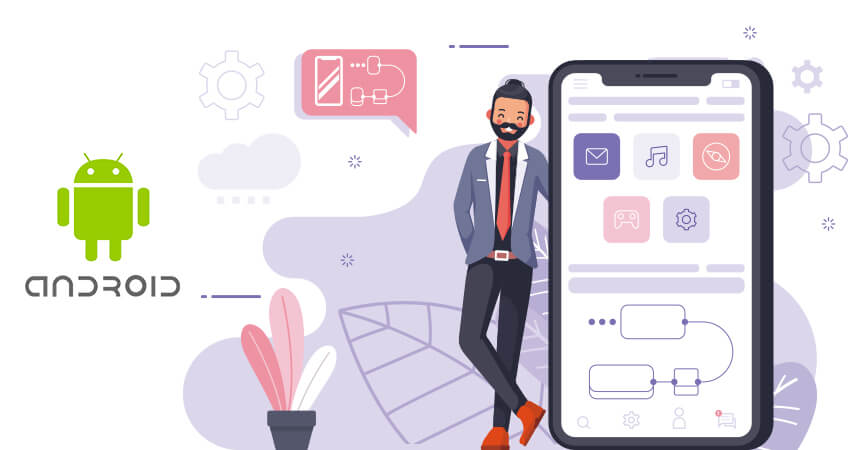
Are you passionate about mobile apps and interested to become an Android App developer? Becoming an Android developer is easy, but becoming a successful Android developer and standing out from the rest is not. It takes a lot of hard work, passion, dedication, and perseverance to become great at this job.
It is a wonderful time to be an Android Developer. The technology is exciting and evolving, new devices are popping up all over the place, and there is a very high demand for developers. Working as an Android developer can be extremely rewarding. It can also be extremely challenging, especially when you are just getting started.
Our mission at ExcelPTP is to help students gain the skills they need for the careers they want and to help them get started and then progress in those careers. Getting started in a junior developer role for Android is similar to many other entry-level programming jobs, but let’s talk about exactly what employers are looking for and how you might start down this career path.
Technical Skills
- 1. Java
You should, of course, be comfortable with the Java programming language. While you can develop Android apps using a number of different technologies, most positions are for native development using Java and Android Studio or Eclipse as your IDE.
You should know things like variables, lists, loops, control structures and object-oriented concepts like class vs. static methods and inheritance. You should also be comfortable using documentation to learn how to use new parts of Java SDK.
- 2. The Android SDK
- A basic understanding of layouts and views
- Activities and their lifecycle
- User input
- Getting data from the web
- Storing data
- Collection views (like list view) and Adapters (default and custom)
- Action Bar
- Accombodating different screen sizes and densities
The Android SDK is a set of development tools used to developm applications for Android. The following list includes many basic Android concepts that you should be familiar with:
- 3. Working with APIs
As mentioned above, getting data from the web is a pretty basic skill for app development since so many apps have a network-based component. This may not be required for all jobs, but many postings I’ve seen expect the developer to be able to work with their own API or some other 3rd party API. These will usually be JSON/REST APIs, though XML/SOAP does still pop up! I would recommend focusing on JSON/REST and only learning XML/SOAP if you need to.
- 4. Git
This particular skill may not be required, but whether you are working alone or with a team you will generally want to use some sort of version control system. You don’t have to be an expert at managing a bunch of merge conflicts, but you should understand the basics of creating and using a repository and committing and pushing changes.
- 5. Back-end skills
Sometimes job posts will ask that the Android developers also contribute to the back-end of their system. I have had this experience myself. This may be harder to add your skillset when you are just starting out as the back-end technologies vary so much, but I wanted to list it as it comes up often enough to warrant discussion.
You can either ignore these posts or use it as motivation to learn or brush up on your back-end skills. And remember, the basic concepts of programming translate well, so sometimes it’s just a matter of getting familiar with the architecture of a system and the syntax of the language. You don’t need to necessarily dive deep into these back-end technologies.
- Design and build advanced applications for the Android Platform
- Collaborate with cross-functional teams to define, design, and ship new features
- Work with outside data sources and APIs
- Unit-test code for robustness, including edge cases, usability, and general reliability
- Work on bug fixing and improving application performance
- Continuously discover, evoluate, and implement new technologies to maximize development efficiency
- Translate designs and wireframes into high-quality code
- Design, build and maintain high performance, quality, and responsiveness of the application
- Identify and correct bottlenecks and fix bugs
- Help maintain code quality, organization, and automatization.
Responsibilities of Android Developers
- Design Phase
- Development Phase
- Submission Process
An Android Developer just understands the project’s specifications defined by the organization and then turn it into a tangible application. The app can be published and submitted to the Google Play Store. Any Android app has the following three phases:
Today a number of mobile app developers are handling both designing and app coding phases along with the submission process. Such developers are known as “full-stack” developers who can handle all of the Android app development phases. Apart from full stack developers sometimes the organizations also hire the programmers and developers for their app development team. As per the current market trend, the UX (User Experience) and UI (User Interface) design are the two most required skills for any Android developer.
Role of an Android Developer
An Android Develop can be a designer and developer of an Android application. Mainly there are following three levels of an Android Developer. Initially, developers work at the junior level. When any company determines the right developer for their organization then at that time they must employ the developer as per the complexity of their app. After working for a certain period as a junior developer they move to the intermediate level. Intermediate level Android developers work independently on a bit complex projects. After working at the intermediate level for several years they become a senior-level Android developer. Senior Android developers have more responsibilities along with coding like they may also have to make a decision and may have to design the app as well. The developers are expected to have familiarity with the following concepts:
As per your project requirement you must choose the developer. The organizations which need to develop the app from scratch will require a senior level developer. While those who need to do small changes in any existing app may hire junior or intermediate level developers. The senior-level developer should review the code before production.
- Mobile App Developer
- Android Engineer
- Mobile Architect
- Mobile Embedded Software Engineer
- Mobile Lead Software Engineer
- Android Developer
- Android Engineer
- Mobile Developer
The main job roles or designations that are generally required in today’s market are:

